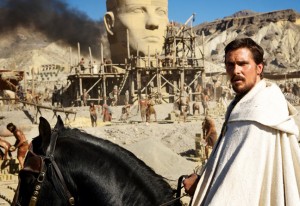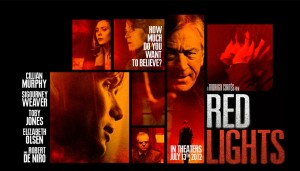RICHARD’S REVIEWS FOR DEC 12, 2014 W “CANADA AM” HOST JEFF HUTCHESON.
 Richard’s “Canada AM” film reviews for “Exodus: Gods and Kings,” “The Imitation Game,” “Top Five” and “Advanced Style.”
Richard’s “Canada AM” film reviews for “Exodus: Gods and Kings,” “The Imitation Game,” “Top Five” and “Advanced Style.”
Watch the whole thing HERE!
 Richard’s “Canada AM” film reviews for “Exodus: Gods and Kings,” “The Imitation Game,” “Top Five” and “Advanced Style.”
Richard’s “Canada AM” film reviews for “Exodus: Gods and Kings,” “The Imitation Game,” “Top Five” and “Advanced Style.”
Watch the whole thing HERE!
 As fans of Charlton Heston are well aware, Moses (Christian Bale) was a one-time Prince of Egypt raised as a brother to Pharaoh Ramses (Joel Edgerton) and exiled to the desert when his Jewish heritage was revealed. He should have perished but instead found a new life, with a wife, a son and a flock of goats.
As fans of Charlton Heston are well aware, Moses (Christian Bale) was a one-time Prince of Egypt raised as a brother to Pharaoh Ramses (Joel Edgerton) and exiled to the desert when his Jewish heritage was revealed. He should have perished but instead found a new life, with a wife, a son and a flock of goats.
It’s during this rather uneventful time that God speaks to Moses, commanding him to liberate his people, the Hebrew slaves, from under the tyranny of Ramses’s rule. “He has lost his mind,” says the Pharaoh. “He has found a god. His god. Not one of ours.” Moses supposes that the slaves are Egyptians and should be treated as such, with fare pay and the rights of any other citizen.
Cue the burning bush, plagues and the (almost) parting of the Red Sea.
Director Ridley Scott is the anti-Cecil B. DeMille. Like “The Ten Commandments,” “Exodus: Gods and Kings” is a huge movie with thousands of extras, two very important tablets and plagues galore. The stories are basically the same (although Scott takes liberties, making God appear as a young, tart-tongued boy) but the approaches are very different.
Scott’s film eschews all the Hollywood glam of DeMille’s biblical epic. It’s humanistic and so gritty you’ll feel like taking a bath afterwards, but not in the Nile, which is turned a lurid blood red as one of the ten plagues. Scott also makes good use of 3D, staging big screen dioramas with amazing detail, depth and even the odd spear that shoots off the screen.
The director pulls out all the stops in the large-scale action scenes and when the movie is raging it works. When he slows the pace in the more introspective scenes it flattens. Character development is one thing. Bad dialogue is another.
The eager cast is up for almost anything, but it’s unlikely that many actors, when asked, “Do you know where we are?” could keep a straight face when replying, “Yes. We are somewhere at a point on earth where there is a sea in front of us and an army behind.” Bale gives it his best, and does a noble job, but the script stymies even this fine actor from time to time.
The film’s climax—and this is NOT a spoiler—is the parting of the Red Sea sequence. Like the plague scenes—wild crocodile attacks, locusts, frogs, pustules etc—the parting is quite stunning visually, but ultimately feels a bit less than miraculous. For one thing it’s more of a wave than an actual parting, and while that may be splitting hairs, it is one of the best-known parts of the story and Scott turns it into an Irwin Allen moment.
“Exodus: Gods and Kings” does share one main thing with “The Ten Commandments” in that there is a noticeable lack of Middle Eastern faces among the cast. The days where Heston and Edward G. Robinson could pass for Egyptian slaves and Pharaohs is apparently not too far in the rearview mirror.
 “Red Lights,” a new paranormal thriller starring Signorney Weaver, Robert DeNiro and Cillian Murphy, is review proof. I saw this because I can’t tell you the plot twist that pushes this movie from the realm of the ridiculous into the land of the ludicrous without spoiling the whole premise.
“Red Lights,” a new paranormal thriller starring Signorney Weaver, Robert DeNiro and Cillian Murphy, is review proof. I saw this because I can’t tell you the plot twist that pushes this movie from the realm of the ridiculous into the land of the ludicrous without spoiling the whole premise.
Dr. Margaret Matheson (Sigourney Weaver, who knows a thing or two about ghostbusting) and Dr. Tom Buckley (Cillian Murphy) are college professors who specialize in debunking psychic phenomenon. Faith healers are sent to prison and séances are demystified but their orderly, science based world is turned upside down when celebrity psychic Simon Silver (Robert DeNiro) comes out of retirement. Imagine Uri Gellar with dark side and you get the picture. Silver was a huge star in the 70s but retired when it was suggested his powers caused a massive heart that killed one of his harshest critics. Matheson wants nothing to do with Silver but Buckley becomes obsessed with getting to the truth of the matter and discovering, once and for all, if Silver has extraordinary powers or is simply a talented magician who takes advantage of the gullible.
“Red Lights” doesn’t make much sense. Writer/director Rodrigo Cortés tries to play both sides of the psychic debate, simultaneously debunking and supporting the idea of extrasensory ability to an extent where the film loses any point of view it might have had. Straddling the fence on the subject at the heart of the story only serves to impale the tale on a mushy middle fence post, nullifying the story’s power.
You’ll only notice the wishy-washy statement of purpose, however, if you can get past the uneven performances. Murphy, a talented actor who delivered a powerhouse performance in “The Wind That Shakes the Barley,” flounders here. His off-balance performance simmers one second and boils the next. It’s strange, (and largely ineffective), work, which I suppose, was meant to add to the otherworldly feel of the film but instead only seems as nonsensical as the story.
Weaver and Elzabeth Olsen emerge largely unscathed because their roles are underwritten and underplayed, but DeNiro has the opposite problem. Theatrical and pretentious, the only uncanny thing about his portrayal of psychic Silver is that he took the role at all.
With its reliance on old-school narrative tricks—explaining the story through news broadcasts—and a muddy point-of-view “Red Lights” is a movie that is as confounding as the subject it portrays.